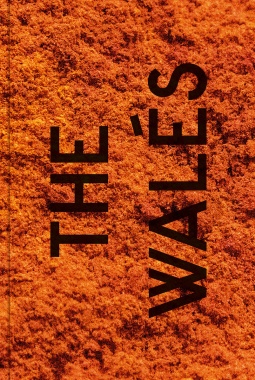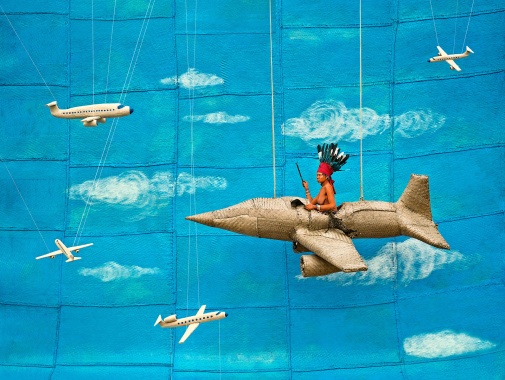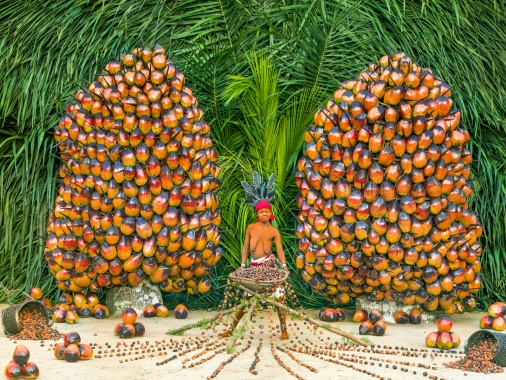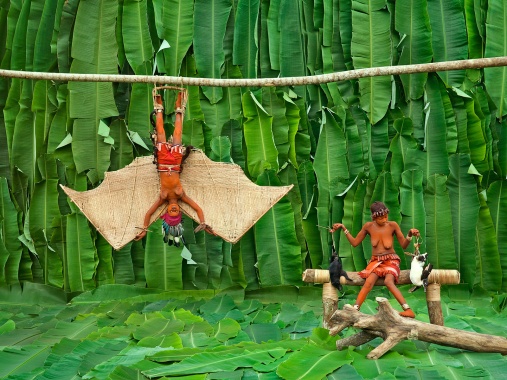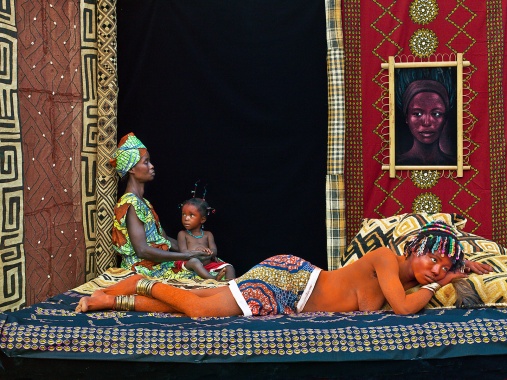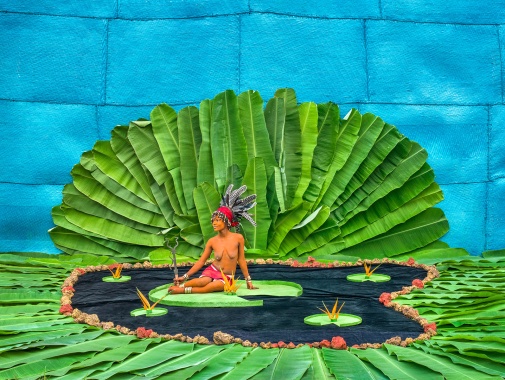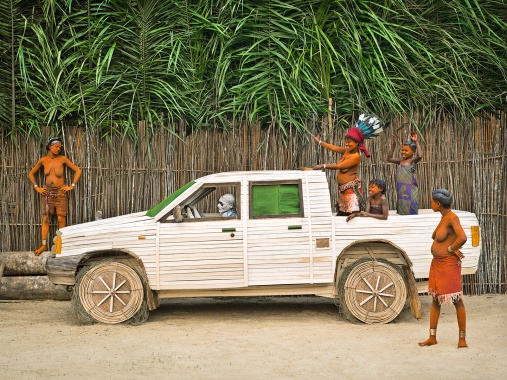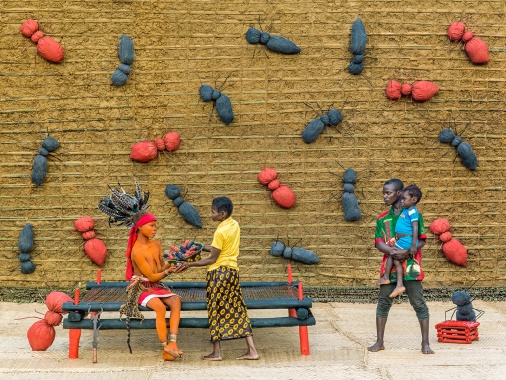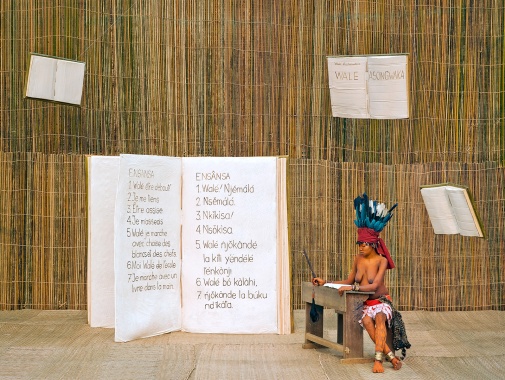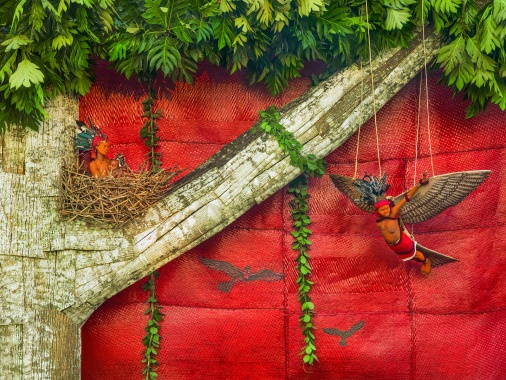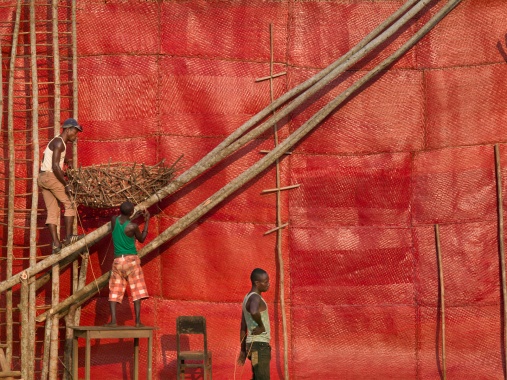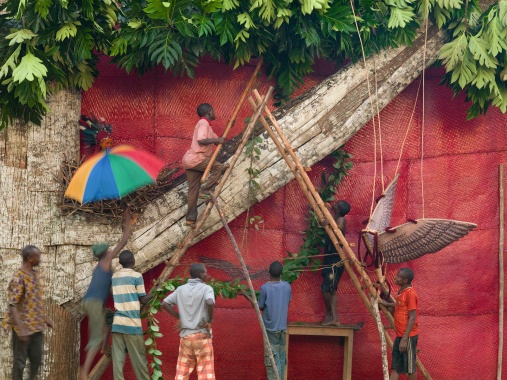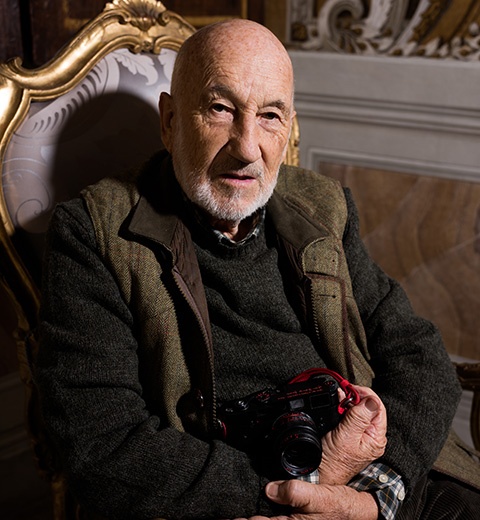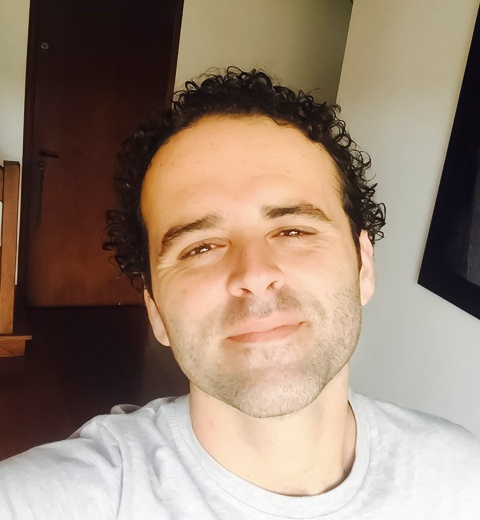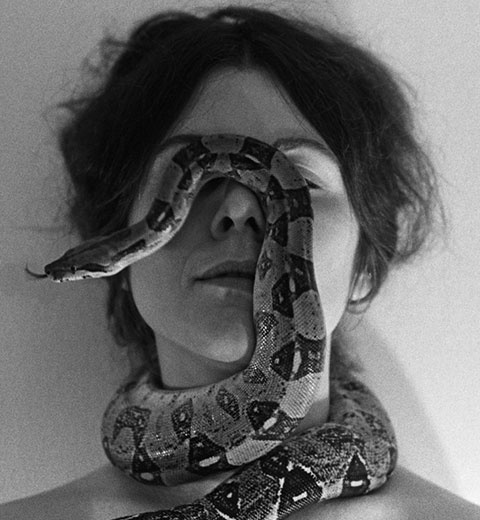Book presentation, Patrick Willocq – Songs Of The Walés
Patrick Willocq and his You cannot pick a stone with one finger series, was one of the most striking finalists for the 2017 Leica Oskar Barnack Award; yet the French photographer had already been a LOBA finalist in 2014 with an equally unusual series, which can now be rediscovered in the form of a book.
With the Songs of the Walés photo series, the viewer is cast into the colourful setting of an African jungle. At the heart of it all are the ritual celebrations of the Walés. This is the name given to the young women of the Ekonda, pygmy tribe in the Democratic Republic of Congo, when they become mothers for the first time. It is a particularly important station in life, which is celebrated very elaborately: the Walés (nursing mothers) live with their children in seclusion – separated from their husbands – for a number of years, cared for by female tribe members. When they return to be part of the tribal community, the Walés – their skin rubbed with a red powder made from Ngola wood – report on their experiences during a festive presentation of song and dance.
Willocq knows the African continent well, spending seven years in the Republic of Congo alone. When he became aware of this particular festivity, he had the idea of collaborating closely with some of the Walés, their clans, an ethno-musicologist, an artist and numerous craftsmen from the region, to build complex stage sets, which were inspired by the songs of the mothers of the Ekonda. The photographer approached his subject with a great degree of fantasy, but also with respect and empathy. The pictures speak about the experiences of the Walés, of their fears but also of their wishes and dreams. “For several years now, I have been translating the songs of the Walés into images, as closely as possible to the experience of these young mothers, actresses who are fully involved in my process, and thus attempt to pierce the mysteries of this tremendously symbolic rite of passage,” Willocq explains.
“For several years now, I have been translating the songs of the Walés into images, as closely as possible to the experience of these young mothers, actresses who are fully involved in my process, and thus attempt to pierce the mysteries of this tremendously symbolic rite of passage.”
The photo book presents three series created between 2013 and 2015: I Am Walé, Respect Me and Forever Walé. Some of these motifs are being shown for the first time, and they are all staged down to the tiniest detail: the over-sized sets are beautifully constructed and, as a result, often appear surreal, yet, as a result, offer even more insight into an otherwise secretive world. In addition to the actual stage sets, the book presents images of their construction: drawings and plans are included so that the production process is more comprehensible. A further interesting feature is the printed QR codes for each individual scene, with which the respective songs that served as the source of inspiration for the images can be retrieved. With this media cross-over, a visual experience also becomes an audio one. The outcome is very impressive, and it is easy to understand the delight of the photographer and his team when making this unusual idea a reality – an idea that led to the artistic transformation of the Walé rituals. Another important aim for Willocq, however, is to offer an alternate, significantly more positive image of the region, countering the media’s tendency to only propagate war imagery.
PATRICK WILLOCQ: SONGS OF THE WALÉS
(Texts by Martin Boilo Mbula, Laurence Butet-Roch, Alain Mingam, Azu Nwagbogu and Patrick Willocq), 208 pages, 178 colour images and 20 drawings. 15.5 x 23 cm, English, Kehrer Verlag
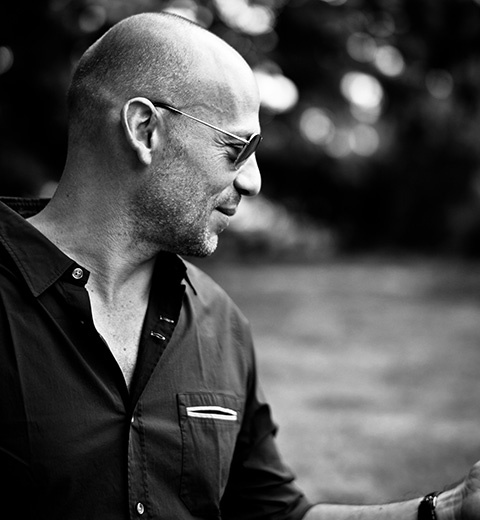
Patrick Willocq
Patrick Willocq (born 1969) lives and works in Paris, Hong Kong and Kinshasa. Willocq has spent over 35 years in countries outside of France. He has been working as a self-taught photographer since 2009, and has received numerous awards and nominations, including the Discovery Award of the Rencontres d’Arles, the shortlist of the Leica Oskar Barnack Award, the Sony World Photo Awards and the Prix Coup de Coeur HSBC for Photography. His pictures have been exhibited internationally many times. In collaboration with Florent de La Tullaye, he produced Le Chant des Walés, a documentary for France 5 television.
